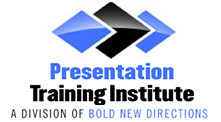Public speaking isn’t a skill that comes naturally to everyone. Nonetheless, it’s an essential skill to master if you want to advance your career. Learning to capture the attention of an audience and effectively articulating a message can be quite impressive. Like any other skill, presenting is something that can be improved with practice. Even expert speakers practice before taking the stage. Here are a few important steps you can take to become a better presenter.Â
1. Identify Your Audience
An expert presenter always knows who they are talking to, and this is one of the first steps in preparing an effective speech. Are you speaking to a room full of bored teenagers, a seasoned panel of experts, or a group of colleagues? When you identify your audience you can tailor your presentation specifically to them. This can influence the language you use, the references you make, and even the humor you infuse. When the audience can directly relate to your message, the presentation immediately becomes meaningful and memorable.Â
2. Research Your Topic
You can only present information that you know so you need to do adequate research to become an expert on your topic. When you are knowledgeable about your topic, you will come across more confident. Studying and researching your topic will also help you answer questions that your audience may ask. Really knowing your stuff helps make your presentation clear, direct, and easy to understand.Â
3. Have a Strong Opener
You have about 30 seconds to capture your audience’s attention before they begin to lose interest. The most powerful speakers know this and always make sure they have a strong opener. Openers are important because they provide the audience with a first impression and a good first impression can have a lasting impact. Perhaps you can begin with a thought-provoking quote, a shocking statistic, an interesting fact, or even a brief story. No matter which one you choose, just be sure that it captivates your audience right from the start and leaves them wanting more. This will set the tone for your entire presentation.Â
4. Tell a Story
Storytelling is one of the oldest forms of communication but it remains one of the most compelling. That’s because humans relate to stories. They evoke emotion, peak interest, and motivate action. Our brains have an embedded need for narrative and stories shape the way we think, feel, and make sense of the world around us. Stories even have the hidden power to influence our decisions. Above all else, stories help us bring information to life. Not only will a story engage your audience, but it will definitely make your presentation more memorable.Â
5. Practice
Even the most experienced presenters take time to practice and rehearse. It is important to outline your presentation so you can practice following along with the outline. Not only will this help you organize your thoughts, but it will also help you with pace. As you practice, be sure to pay attention to your body language and eye contact. You also want to eliminate filler words like “um†and “uh†that can be distracting. Try pausing as you practice to place emphasis on important points and to recenter your thoughts. It can be helpful to record yourself or practice in front of friends and family so you can get a better understanding of how you look and sound to the audience.Â
